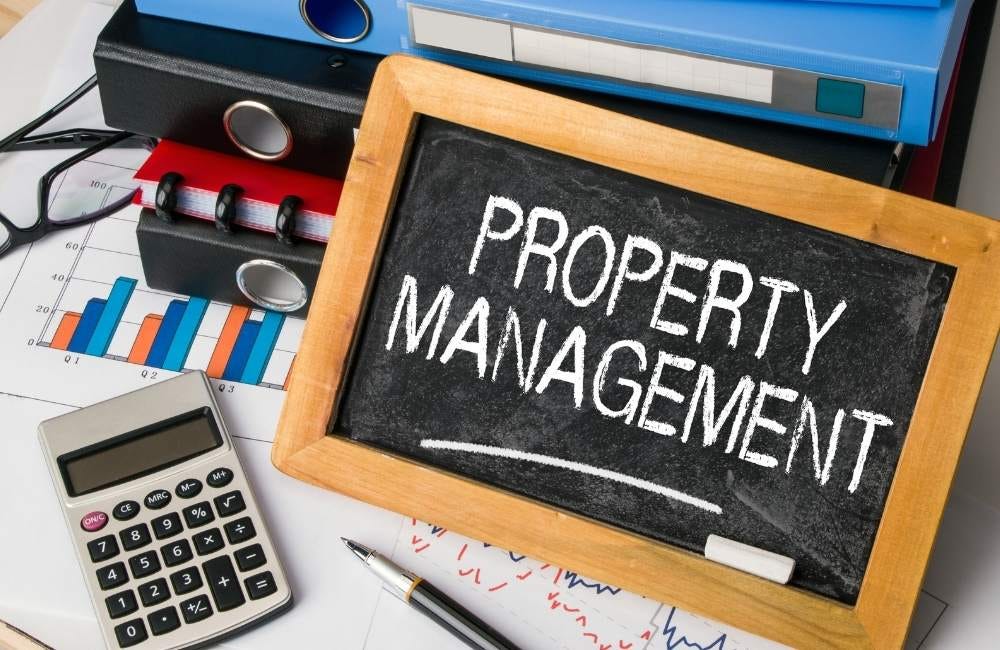The Distance Dilemma: How to Evaluate Whether to Hire a Property Manager for Your Long-Distance Investments
Plus 5 Steps to Hiring the Right Property Manager
Happy Thursday, fellow Hybrids!
In today’s newsletter, I will share the counterpoint to last week’s newsletter (How I Saved $25k In Property Managements Fees over 3-Years by Self-Managing) by explaining why we chose to hire a full-stop Property Manager for our 3 rentals in Iowa.
Today’s issue takes ~5 minutes to read)
Last week I shared a breakdown of the system we use to self-manage our 4 rental properties in Las Vegas from 1,200 miles away.
This system saved us $25k in Property Management fees over 3 years!
We maintain this self-management system while I work a demanding full-time job & balance the responsibilities of raising an 18-month-old.
But self-management isn’t always the best answer, especially as you start to scale into new markets.
How do you know when to hire & a full-stop manager vs. self-manage?
Understanding how to make such a huge decision is crucial if you're a real estate investor who balances a full-time job.
The Basic Question: To Self-Manage or To Hire a Property Manager
You have two choices for each rental property you own:
Manage it yourself and handle all rental processes,
Hire a third-party professional, such as a property management company, to take care of it for you.
There’s no right or wrong answer, as you’ll need to take a deep look at your individual situation to understand what will work best for you.
What Does Property Management Entail?
Regardless of which path you choose (Self-Managing vs. Property Manager), here are the bases you’ll need to cover:
Collecting rent
Marketing listings
Bookkeeping & accounting
Drafting lease documents & renewals
Collecting applications & screening tenants
Keeping track of market rents & adjusting accordingly
Manage tenant communications & maintenance requests
Understanding the local eviction process & being prepared to use it (without breaking the law)
If this sounds like a lot, that’s because it is.
It’s easy to self-manage properties when everything is going well, but what about when it’s not?
This leads me to…
When To Hire A Full-Stop Property Manager
Knowing when and how to leverage property management can make a massive difference in your stress levels, profitability, and overall success.
The benefits could be huge:
More time for you to spend on your family, career, health, or other hobbies
Better returns due to knowledge of market conditions & proactive maintenance
Less hassle dealing with tenant issues such as rent collection & move-in/move-out
Think of your PM as an insurance policy against your biggest blind spots.
Ask yourself the following questions:
Do you have the time (and knowledge) to deal with a lengthy eviction process?
Do you trust your ability to get the correct value for your rental property & keep pace with market rents?
Do you have a trusted network of contacts on the ground if you had to “deal with” something urgently, or would you have to travel and handle it yourself?
Related: Do you even have the skills to handle it yourself?
Suppose the answer is no to any (or all) of these questions, especially in a long-distance investing scenario in a new market.
A property manager is likely a good investment for you.
Here’s an example of how we made this decision when investing in Iowa:
These were our circumstances when we started investing in Iowa:
My wife was 8 months pregnant with our first child.
I had just been promoted to a new, more demanding job.
We had never been to the area in Iowa that we were planning to invest in.
We already owned & self-managed 5 properties (4 of which were over 1,000 miles away).
We had no contacts on the ground for repairs, maintenance, or any other services (beyond our real estate agent we found on Zillow).
Cross-reference that with the list of questions I asked above; the choice seemed clear.
With that said, not all property managers are created equal, and there are a LOT of bad apples out there. Take it from someone who learned the hard way…
A Cautionary Tale - Never Trust, Always Verify
My wife and I bought our first fully remote, sight-unseen rental property in Davenport, Iowa, in January 2022.
We found & vetted a property management company through an online community I belonged to and ran them through multiple phone interviews based on a thorough list of questions.
Everything in the interview checked out, and we were eager to close the deal, so we went with the first PM company we interviewed.
Long story short:
Our contact there was not the decision-maker (contrary to what he told us)
They didn’t visit the property for weeks after closing, despite promising us they would complete maintenance flagged on our inspection report.
Our property was left vacant with no heat in the middle of the Iowa winter for 8 weeks…
Let’s just say it didn’t work out with that PM…
(Read the full story and key takeaways in ~3 minutes here: 3 Hard Lessons I Learned From Firing My Property Manager)
Why am I telling you this horrible story?
Because I want you to be more thorough than we were when vetting your potential property manager(s).
I don’t want you to go through what we went through.
None of the benefits mentioned in the previous section apply if you hire a terrible PM.
So How Do I Find A Good Property Manager?
This is the hardest part. Here are several ways to go about finding a good PM:
1. Referrals
Referrals are by far the best method for qualifying PMs.
These referrals could come from:
Current investors (the ideal type of referral)
Investor-friendly agents or brokers
Real estate attorneys
Contractors
At this point, I won’t consider a PM unless I have connected with at least 2 of their current investors. They would know better than anyone else what working with them is like.
If you don’t know any of these folks within a given market, I suggest meeting some through online communities such as the BiggerPockets forums. You’d be surprised how much people are willing to share their stories & contacts, especially with new investors.
(NOTE: There is a lot of “noise” on BP, so proceed with caution. You should NEVER take someone’s word without verifying with additional vetting)
This leads to…
2. Online research
Whether or not you have a referral, you’ll also want to dig into your standard online research.
Google property management companies in your area
Cross-reference reviews on Yelp, Facebook & Google Reviews
Search through a site like All Property Management, which matches owners with vetted property managers.
Go to the Better Business Bureau's website for ratings and customer reviews. It will tell you if a company has been the subject of complaints. You’ll want to find companies with a rating of B or higher.
3. Check for licenses & certifications
Many states require property managers to be licensed brokers or hold specific certifications to operate legally.
Research any state or city-specific requirements and check the public records for licenses.
The following certifications are “nice to have” but not 100% necessary:
NARPM, which is the National Association of Residential Property Managers. This is aimed at single-family homes and small residential sites.
RMP is the Residential Management Professional designation indicating that they have finished their initial training and verification process.
MPM is the Master Property Manager, implying that they have more experience.
CRMC (Certified Residential Management Company) indicates a Preferred Residential Management Company.
4. Conduct your interview
Now it’s time to get on a call. I suggest you make this a video call if possible. You can learn a lot about someone by observing their body language.
My average discovery call interview length for a PM is ~45 minutes, and I run them through a thorough list of questions about their qualifications & background.
You can find my full PM interview template as part of my FREE Ulitmate Interview Template Pack to Build Your Real Estate Investing Team.
Remember, you’re hiring someone directly responsible for caring for one of your most valuable tangible assets.
Don’t cut corners & make a note of any areas you get pushback on your questions.
5. Check with references (Do NOT skip this step!)
Speak with a handful of the property manager's current clients who own property similar to yours.
For a deep dive into how to do this effectively, I recommend reading this Twitter thread from Helpful Landlord (@helpfullandlord)
https://twitter.com/heIpfullandlord/status/1616077272540225537?s=20
Conclusion
Hiring a Property Manager is one of your most important decisions as a real estate investor.
By thoroughly examining your personal situation and asking thoughtful questions about your capacity to deal with management, you’ll be able to determine if hiring a PM is the right choice for you.
If you decide to hire a PM, don’t cut corners on your vetting & interview process.
Download my FREE Ulitmate Interview Template Pack to Build Your Real Estate Investing Team to get a thorough list of questions to ask your PM (and the rest of your team).
As always, reply back to me with any questions. I’d love to hear from you.
See you next week.
-Aaron






